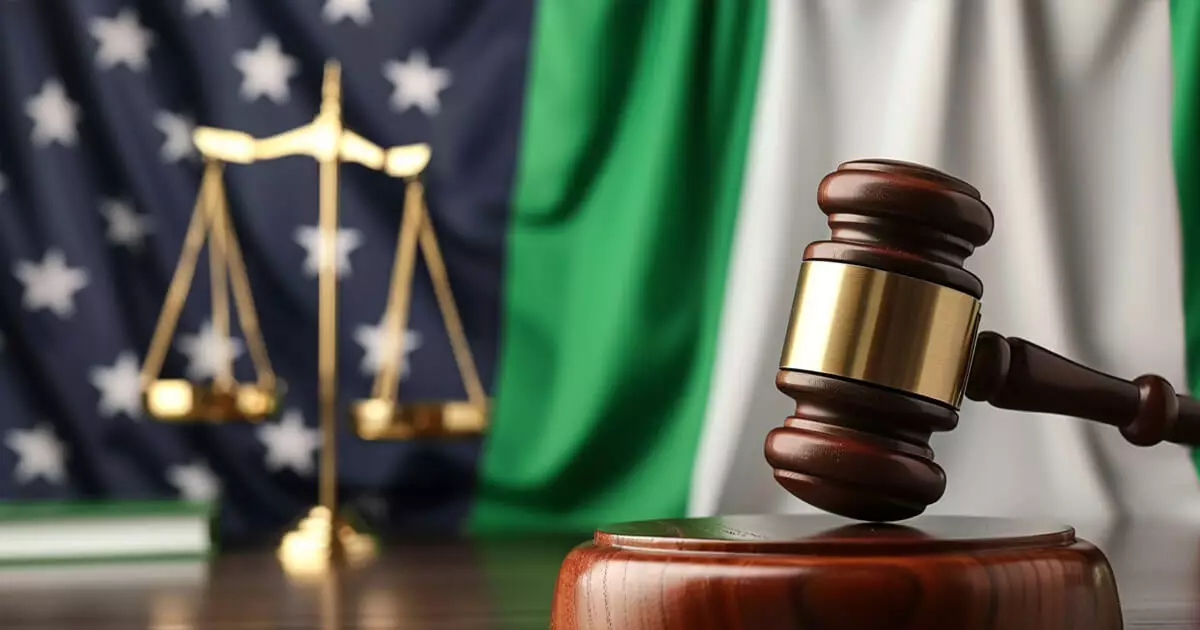In a significant development on October 23, the United States and Nigeria announced the formation of a Bilateral Liaison Group aimed at addressing the surging challenges posed by cryptocurrency-related crimes and illicit financial activities. This collaboration illustrates both nations’ commitment to engaging in a sophisticated partnership that not only acknowledges current issues but also builds capacities for future challenges in the digital currency realm. The initiative seeks to streamline cooperation, leveraging the resources and expertise of both countries to combat the growing threat of cybercrime.
Nigeria’s Emerging Role in Cryptocurrency Adoption
Recent statistics reveal that Nigeria ranks as the second-largest adopter of cryptocurrencies globally, establishing itself as a powerhouse of digital finance in Sub-Saharan Africa. This surge in adoption is indicative of the country’s growing digital economy, which has become particularly attractive to a younger demographic seeking alternative financial solutions. The rise of cryptocurrencies offers numerous benefits, such as facilitating low-cost and rapid cross-border transactions. Yet, this rapid expansion also raises alarms regarding the vulnerability to fraud, scams, and other illicit activities that exploit the decentralized nature of digital currencies.
Counteracting Illicit Financial Activities
The prominence of cryptocurrencies has not only spurred legitimate business ventures but has also attracted criminal elements keen to exploit loopholes in the system. The decentralized and borderless aspects of cryptocurrencies can prove challenging for regulatory bodies and law enforcement worldwide, making it difficult to trace illicit transactions. Notably, a report by TRM Labs indicated a significant decrease in illicit funds within the cryptocurrency space—from $34 billion in 2023, down by an astonishing 99% year-over-year. Despite this positive trend, it remains crucial that proactive measures are taken to ensure that cryptocurrencies are not misused for criminal ends.
The Bilateral Liaison Group is poised to serve as a vital platform for intelligence sharing, collaborative strategizing, and coordinated actions. Members will not only focus on improving Nigeria’s investigative powers and regulatory frameworks but also aim to enhance public-private partnerships. By fostering collaboration with tech companies engaged in blockchain analytics, the group can employ advanced tools to monitor and scrutinize cryptocurrency transactions linked to potential criminal activities. This multi-faceted approach highlights the importance of aligning law enforcement with technological advancements.
Critical to the success of this initiative will be the emphasis on training Nigerian law enforcement agents and raising public awareness about the intricacies of cryptocurrency usage. Knowledge dissemination will be paramount, allowing citizens to operate within the cryptocurrency space securely while remaining vigilant against possible scams. Moreover, as the United States looks to extend similar partnerships with other countries, the lessons learned from this collaboration may provide a template for global efforts in regulating and mitigating cryptocurrency-related crimes.
As we navigate the complexities of a rapidly evolving financial landscape, the United States and Nigeria’s Bilateral Liaison Group represents a proactive approach to curbing the misuse of digital currencies. Their commitment to fostering cooperation and sharing resources may catalyze further international collaborations, ultimately leading to a more secure and regulated cryptocurrency ecosystem. This partnership not only stands to benefit the two nations involved but could also serve as a model for other countries grappling with similar challenges in the cryptocurrency domain.



















Leave a Reply